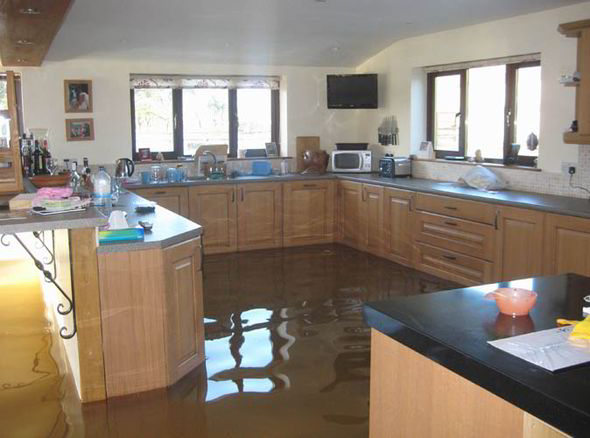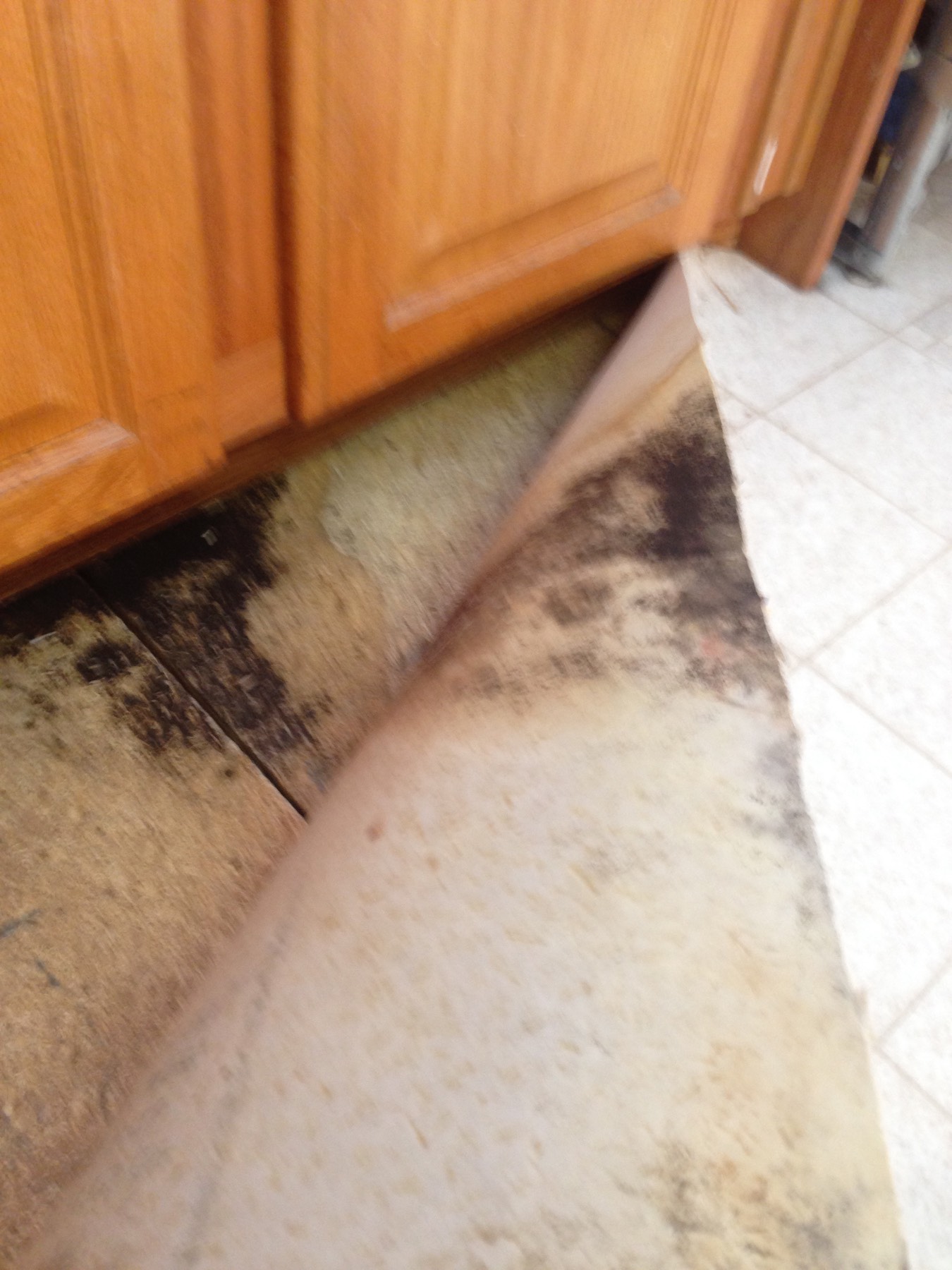Water Damage: Causes, Signs and also Solutions
Water Damage: Causes, Signs and also Solutions
Blog Article
We have uncovered this article involving How To Prevent Water Damage To Your Kitchen below on the web and accepted it made good sense to write about it with you over here.

The kitchen area is the room where a great deal of water task goes on. You can rarely do anything without utilizing water in the cooking area, from cooking, cleansing, and doing the recipes.
Therefore, examining your kitchen area every so often is a necessity. This is due to the fact that it has a higher opportunity of getting water damage as a result of the home appliances you make use of there.
When malfunctioning, these appliances that regulate water might make your kitchen unpleasant and influence the framework of your building in the future.
Allow's inspect out some reasons of the water damage in the kitchen area and what you must look out for.
Some Causes of Water Problems in the Kitchen
These are a couple of reasons for water damage in the cooking area.
Faulty Drain Piping
Drain Pipelines are necessary parts of our residences, especially in our shower rooms and kitchen areas. They get malfunctioning by getting obstructed, cracked, as well as ruptured. Or worse, they can be mistakenly or loosely attached; whichever the case might be, it can be an extreme issue.
Malfunctioning drainpipe pipes can trigger water damage and also, as a result, trigger mold and mildew development and damage the appearance of your wall surface. It can also make the affected location look unpleasant.
It is advisable always to inspect to make sure that all the pipelines are in good problem and also get a sound plumbing system to keep and also deal with any problems.
Faulty Kitchen Area Sink
The cooking area sink is an important as well as a lot of made use of part of the cooking area. It is prone to water damage; damages such as blocked pipes, leaking pipes, as well as malfunctioning taps.
These problems can be aggravating, specifically when one is active in the cooking area. It does not simply occur without providing a hint or an indication. Below are some indications to understand when your sink is not fine
So, these are the significant problems that can happen to your kitchen sink. One method to stop this damages is by guaranteeing that food fragments do not obtain into the pipelines. You are likewise checking the faucets and also pipelines and making sure that it is properly dealt with as well as in good condition.
Leaking Dishwasher
Dish washers make life in the kitchen area easier. Nonetheless, it is an optional kitchen device as well as, when available, can be a resource of water damage. In addition, like various other devices, it will certainly establish faults gradually, even with upkeep.
One of the mistakes is leaking with the door or below the dish washer. These faults establish due to age, fractures, incorrect usage, loosened links to pipelines, etc.
Mistakes due to age originated from continuous use. As a result, the door leaks as a result of opening and also closing.
Faults from the incorrect usage may create water damage by introducing fractures to it. It is advisable to comply with the hand-operated overview of the dishwasher to avoid this certain damage.
The leaks under the dishwashing machine can originate from cracks in the gasket, hose pipe, and also loose or wrong link to water pipes or drains.
This type of leakage frequently goes unnoticed and also can be there for a long period of time. Due to the time structure, it can trigger and also harm the floor mold growth.
Much more so, the longer the water remains, you will certainly see the bending of the flooring where the dishwasher is. This is a good indication to watch out for when inspecting if your dish washer leakages. Finding as well as fixing this on schedule avoids major water damage to your flooring.
Bottom Line
Watching out for damages in your kitchen area can be charging however required. It makes your work there simpler and safer.
However, the causes listed above are only a few factors to consider, especially if your cooking area has a great deal of devices.
Obtain an expert plumbing service to come about as well as check for any damage and obtain them taken care of.
It makes your kitchen area wet and unpleasant, specifically when leaking from the pipes. And if it is trickling from the tap, it leads to water wastage.
It is an optional cooking area home appliance and, when available, can be a resource of water damage. Much more so, the longer the water stays, you will certainly discover the bending of the flooring where the dishwasher is. Detecting as well as repairing this on time stops serious water damage to your floor covering.
WAYS TO PROTECT YOUR KITCHEN FROM WATER DAMAGE
The kitchen is one of the most significant rooms in your house, as it is a multipurpose room wherein you can do your cooking and cleaning. Nowadays, homeowners tend to ignore the problems under their sink or appliances because of their busy schedules. However, most household floods occur due to plumbing and appliance failure. One of the most common scenarios that cause water damage to your kitchen is when the dishwasher malfunctions and floods gallons of water.
Water damage in your kitchen can cause several problems, including cosmetic damage, mold growth, and even an unpleasant smell. Often, if you fail to neglect the problem, there are always consequences. This article will help you protect your kitchen from water damage.
Common Causes of Water damage in your kitchen
Pipe problems are the most common source of water leaks under your sink. If homeowners ignore this issue, it will burst and flood the kitchen. Dishwasher leaks can be a source of water damage in your kitchen. An old, broken, and defective dishwasher can cause leaks, damage to your floor, and even mold growth. Refrigerator leaks can cause water damage in your kitchen, as sometimes melted ice from defrosting can cause leaks. Furthermore, if your refrigerator has internal problems, it is very likely to cause water damage. Back-splash and sink caulking can cause discoloration and water damage to your countertop tiles. Ways to Protect Your Kitchen From Water Damage
Regular maintenance
The most important thing you can do to protect your kitchen from water damage is to inspect the sinks, drains, and pipes, as well as the kitchen appliances, regularly. As with the sink, check for missing or deteriorated caulk. Remove the old caulk and clean the area thoroughly and re-seal it with fresh silicone. Furthermore, sweep the drain regularly, empty the filter and dispose of the debris in the garbage, and inspect the supply lines and valve for cracks.
Check your appliances
Check the user’s manual for instruction and proper use of every water-related appliance installed in your kitchen. For the dishwasher, check this procedure to prevent the dishwasher from flooding your kitchen. Check the appliances that need water, such as the coffee maker, ice maker, and water cooler, as they can become the cause of water damage in your kitchen. You may call a professional to check and repair damaged appliances and professional restoration for water damage clean-up.
Garbage clean-up
Fats, oil, and grease are common in the kitchen. Pouring them down the drain can cause clogs and sewage backup, which may result in significant kitchen water damage. If your kitchen sink is clogged, use a solution of hot water, baking soda, and vinegar to unclog the fats and oils in the pipes. Also, make sure to throw out the debris in the trash and clean the sink properly using paper towels for greases and oil and soap or bleach solution for the sink itself.
Shut off your water line
Make sure to shut off your main water line, especially if you're away and having some flood issue. As mentioned, dishwasher leaks are one of the most common culprits of water damage in the kitchen. So, make sure to only use the dishwasher if someone is at home and available to attend in case a problem arises.
Furthermore, it is also important that every member of your household knows where the shut-off valves are located. So in case of an emergency, they can mitigate the damage by turning off the water source.
Install leak detectors
One of the best ways to catch water damage before it could even cause serious damage to your home or business is by installing a water or leak detector. A leak detector monitors the flow of water through a pipeline, can detect moisture in the air for molds, and tracks the water temperature. Also, it can shut off your water line in case of an emergency. Install leak detectors under the kitchen sink, near the dishwasher and refrigerator.
https://superiorrestore.com/7-ways-to-protect-your-kitchen-from-water-damage/

I was made aware of that editorial about Causes of Water Damage in Kitchen through someone on a different web property. Kindly take a moment to share this blog post if you liked it. I praise you for your time. Come back soon.
Request Appointment Report this page